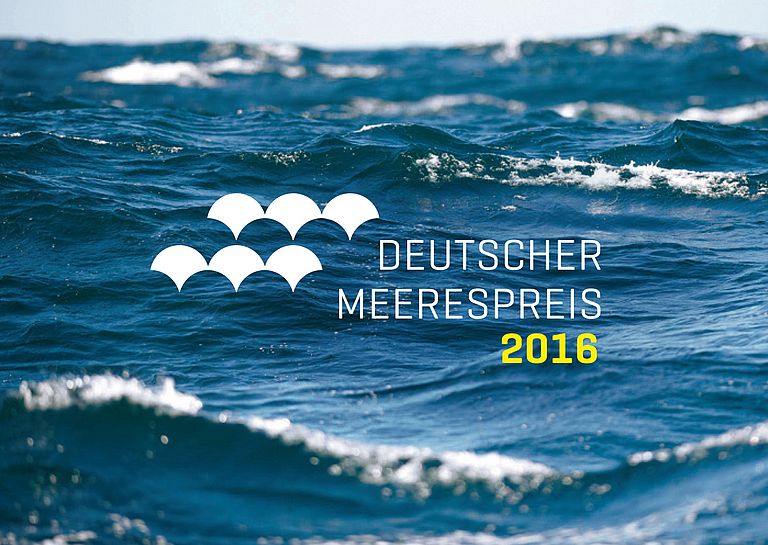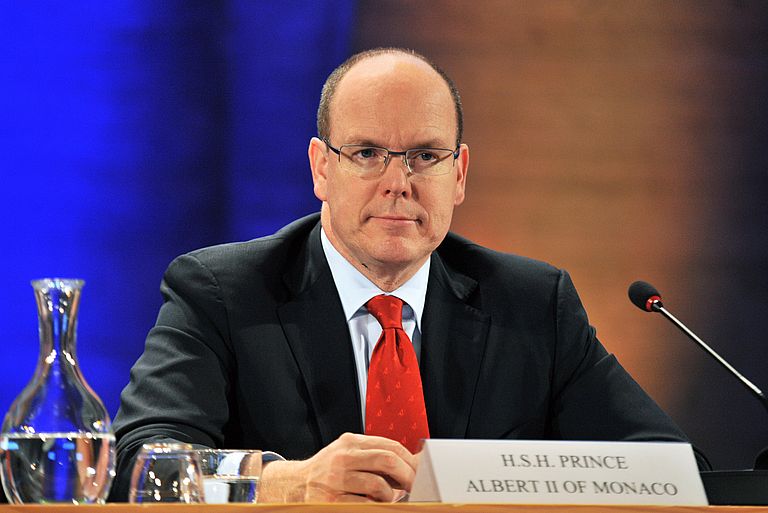The President of the Mediterranean Science Commission, Prince Albert II of Monaco receives German Ocean Award (“Deutscher Meerespreis”)
Monaco is well known by marine scientists. The Oceanographic Museum of Monaco founded by Prince Albert I has an excellent reputation. For many years the famous diver and marine biologist Jacques-Ives Cousteau was director of the museum. Beyond the museum itself Monaco is engaged in areas of marine research for more than 100 years. For example, the foundation of the Mediterranean Science Commission (Commission Internationale pour l' Exploration Scientifique de la Méditerranée, CIESM) in 1919 was founded on an initiative of Prince Albert I. CIESM is an intergovernmental organization for the promotion, coordination and planning of scientific exploration of the Mediterranean, based in Monaco. The organization has 23 member states and the current president is Prince Albert II. Since many years Prince Albert II is committed to the protection of the oceans. For example, in 2006 he established a foundation for the protection and preservation of world threatened ecosystems named after him (Fondation Albert II de Monaco) to draw attention to problems such as global warming and acidification.
During the inauguration of the 41st CIESM Congress on 12 September in Kiel, Germany, Prince Albert II will receive the German Ocean Award (“Deutscher Meerespreis”) in the presence of the patron of the German Ocean Award, Prime Minister Torsten Albig, the Federal Minister of Education and Research Professor Johanna Wanka and EU Commissioner Karmenu Vella.
"With this award, we also recognize the long-standing commitment of Prince Albert II for the research, preservation and protection of the oceans," says Professor Peter Herzig, Director of GEOMAR. Therefore it is a special honour for us to welcome him in September in Kiel", Herzig continues.
Background information on the German Ocean Award:
The ‘Deutscher Meerespreis’ (German Ocean Award) is awarded by the GEOMAR Helmholtz Centre for Ocean Research Kiel and the Deutsche Bank under the patronage of the minister-president of Schleswig-Holstein.
With a value of €10,000, the ‘Deutscher Meerespreis’ is awarded to well-known individuals from the fields of politics, business, science or the media who have shown special commitment to the cause of preserving and protecting the world’s oceans or to communicating knowledge and educating the public about them. Awarded since 2009, the ‘Deutscher Meerespreis’ is the successor prize to the Elisabeth-Mann-Borgese-Meerespreis of Schleswig-Holstein that from 2006 to 2009 was likewise awarded to notable public figures. Past prize winners include Dr. Joe Borg, formerly the EU commissioner for Maritime Affairs and Fisheries; Prof. Dr. Boris Worm, renowned internationally as a marine ecologist, and Prof. Dr. Klaus Töpfer, formerly the executive director of the United Nations Environment Programme (UNEP).
Contact:
Press ReleasesDr. Andreas Villwock (GEOMAR, Communications & Media), Phone: +49-431 600-2802 presse@geomar.de




